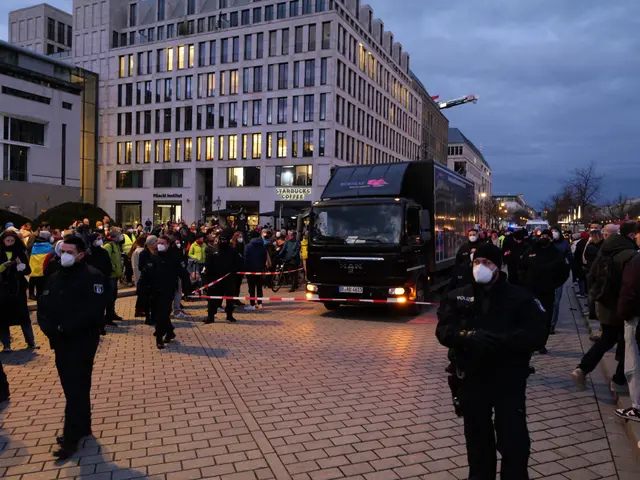Military action planned in Gaza City: Significant risks and potential financial burdens loom
In a significant development, the Israeli Defense Forces (IDF) have initiated Operation "Gideon's Chariots B," a large-scale operation aimed at securing Gaza City, the densest and most populous location in the Gaza Strip, which is considered Hamas's stronghold.
Approximately 60,000 reservists have been called up for the operation, indicating the scale and intensity of the conflict. The IDF is employing immense ground power to seize urban terrain, with the Givati Brigade, under the command of the 162nd Division, operating in the northern Gaza Strip.
Israeli tanks and troops are moving closer to Gaza City's outskirts in preparation for a full-scale offensive. The IDF has made rapid adaptations in the use of drones, robots, and specialized units for tunnel warfare, a tactic Hamas has used to conceal commanders, fighters, and hostages.
The operation, according to military analyst Shamni, could potentially last months, with a protracted battle ahead. Shamni warns that the operation will cost many lives, including civilians, and foresees the use of air force bombs, massive charges, detonating streets from afar, and advancing slowly.
The battle for Fallujah in Iraq, which took two weeks to clear every structure, serves as a comparison for the scale of the planned Gaza operation. Israel plans to send more combat power into Gaza City than it has deployed across the entire Strip thus far.
The decision to press forward with the operation has been met with caution by experts. John Spencer, an expert on urban warfare, states that the operation is unprecedented in scale and will be a significant challenge for the IDF. Spencer calls the decision to press forward a "calculated risk," weighing the risk of Hamas killing hostages against their certain starvation and torture.
Shamni warns that the dual goals of defeating Hamas and returning hostages may lead to years of drawn-out fighting. Some of the hostages possibly held in Gaza City may die during the operation.
As the operation unfolds, the world watches with bated breath, with many expressing concern for the safety of civilians and the potential long-term implications of the conflict. Efrat Lachter, an investigative reporter and war correspondent, is on the ground in Gaza, reporting on the developments as they happen. Follow her updates on Twitter @efratlachter.








